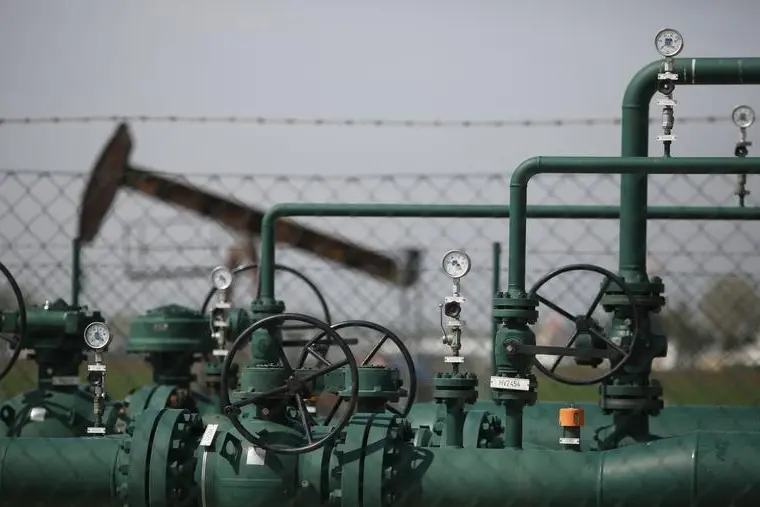PHOTO
Tuesday, Aug 04, 2015
Dubai: The UAE economy is well prepared to withstand the impact of falling oil prices and consequent erosion in long-standing fiscal and external surpluses, the International Monetary Fund (IMF) said on Tuesday.
“The UAE has continued to benefit from its perceived safe haven status and large fiscal and external buffers that have helped limit negative spillovers from lower oil prices, sluggish global growth, and volatility in emerging market economies,” said Zeine Zeidane, Advisor, Middle East and Central Asia Department.
Despite such a strong buffer, economic outlook is expected to moderate amid lower oil prices. Nonoil growth is projected to slow in 2015, before accelerating in the medium term. Export and revenue losses from lower oil prices will be the most significant transmission channel for the UAE economy.
According to IMF data, the UAE’s non-oil growth remained robust at 4.8 per cent in 2014, driven by construction, notably owing to capital spending in Abu Dhabi, and Dubai’s transportation and hospitality sectors.
The economic outlook is expected to moderate amid lower oil prices. Nonoil growth is projected to slow to 3.4 per cent in 2015, before increasing to 4.6 per cent by 2020, supported by the implementation of megaprojects and private investment in the run-up to Expo 2020.
Current account surplus
Growth in oil production will likely to moderate given the global supply glut. The overall fiscal balance this year is expected to turn negative for the first time since 2009 to record a deficit of 2.9 per cent of GDP, but is expected to return to surpluses from 2016.
Reflecting the sharp decline in oil export revenues, the country’s current account surplus is also projected to decline substantially, to 5 per cent of GDP and will slowly increase with the projected gradual recovery in oil prices.
The IMF welcomed, the Central Bank of UAE’s (CBU) efforts to strengthen the banking regulatory and supervisory framework. “The banking sector is resilient and has enough capital and liquidity buffers to withstand an adverse shock. The CBU plans to phase in Basel III capital and liquidity standards over 2015—19 and to strengthen its risk-based supervision are welcome and should be timely implemented,” said the IMF report.
As the corporate sector structure in the UAE is characterised by large GREs and family groups, compliance by banks with the loan concentration limits for GREs and local governments is challenging and should be monitored, including the planned transition paths for banks exceeding the limits with no-exemption.
Developing domestic debt markets would reduce the reliance on external funding and bank lending, helping banks comply with loan concentration limits. Over the medium term, the authorities should consider developing resolution frameworks, and establishing deposit insurance mechanisms.
Excessive exposures
Authorities should strengthen their macroprudential framework, building on their successful implementation of real estate-specific measures. Macro-prudential policies such as maximum loan to value ratio for mortgages and Debt Service-To-Income (DSTI) caps help reduce excessive exposures by the banking system associated with systemic risk. However, the current macroprudential policy framework needs to be strengthened in line with best practices such as formalising a financial stability mandate in the central bank law, establishing a Financial Stability Committee at the central bank level, and institutionalising coordination with the Ministry of Finance and other relevance agencies.
Continued strengthening of GREs balance sheets and active management of their upcoming debt repayments, while raising risk-weights of bank lending to GREs if needed, will be important in reducing macro-financial vulnerabilities.
Structural reforms should aim at further diversifying the economy and accelerating private sector-led job creation for nationals. These could include: further opening up foreign direct investment, improving selected areas of business environment, transitioning toward a knowledge-based economy, easing access to finance for start-ups and SMEs, and creating the right incentives for entrepreneurship and job creation.
By Babu Das Augustine Banking Editor
Gulf News 2015. All rights reserved.





















